Zero Robotics Summer of Innovation 2010
Info

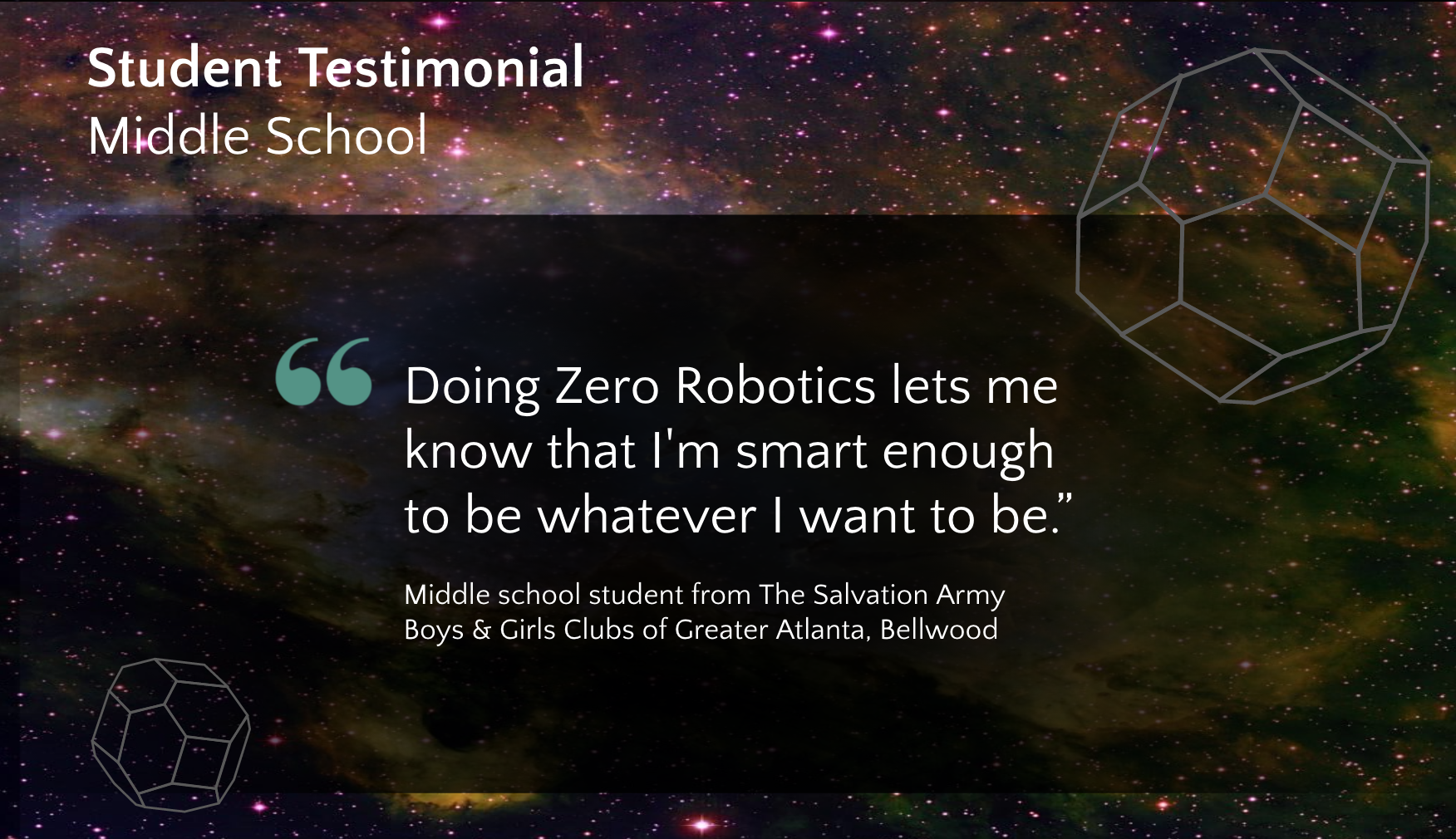

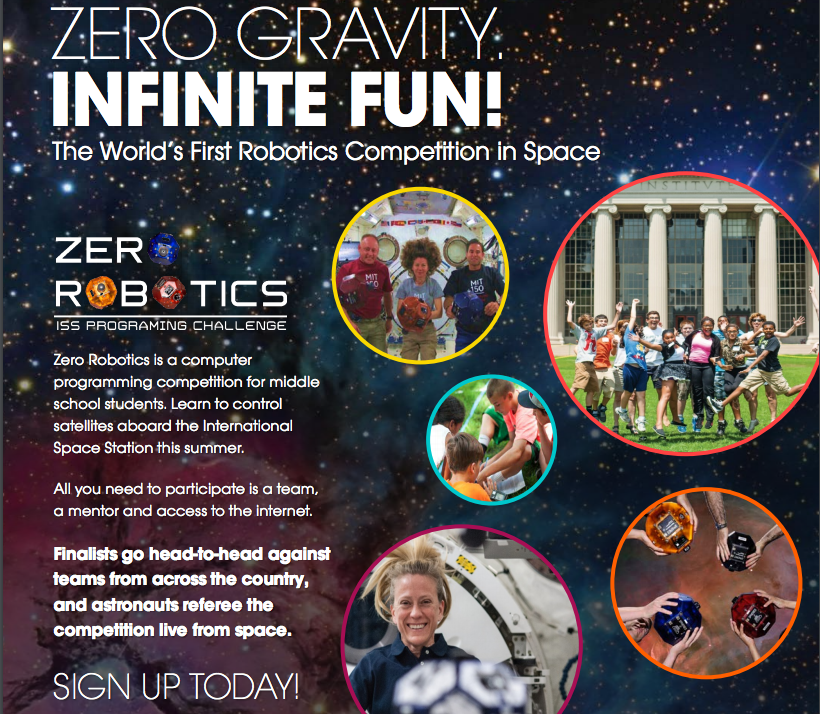
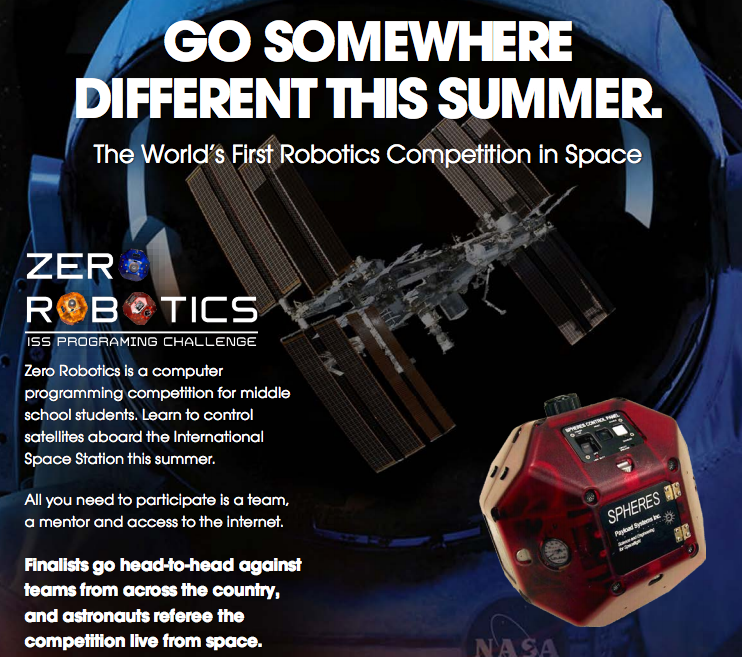

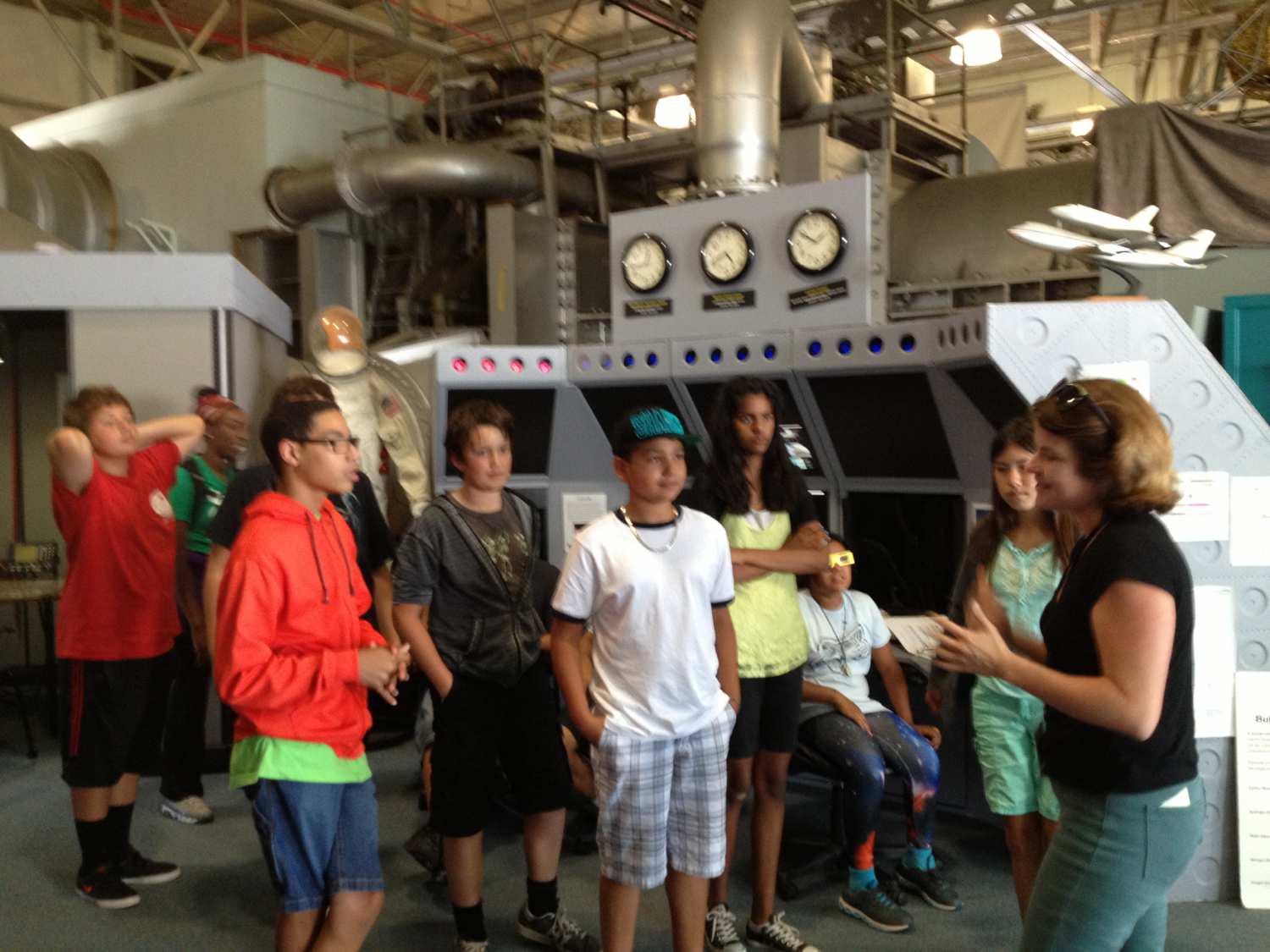
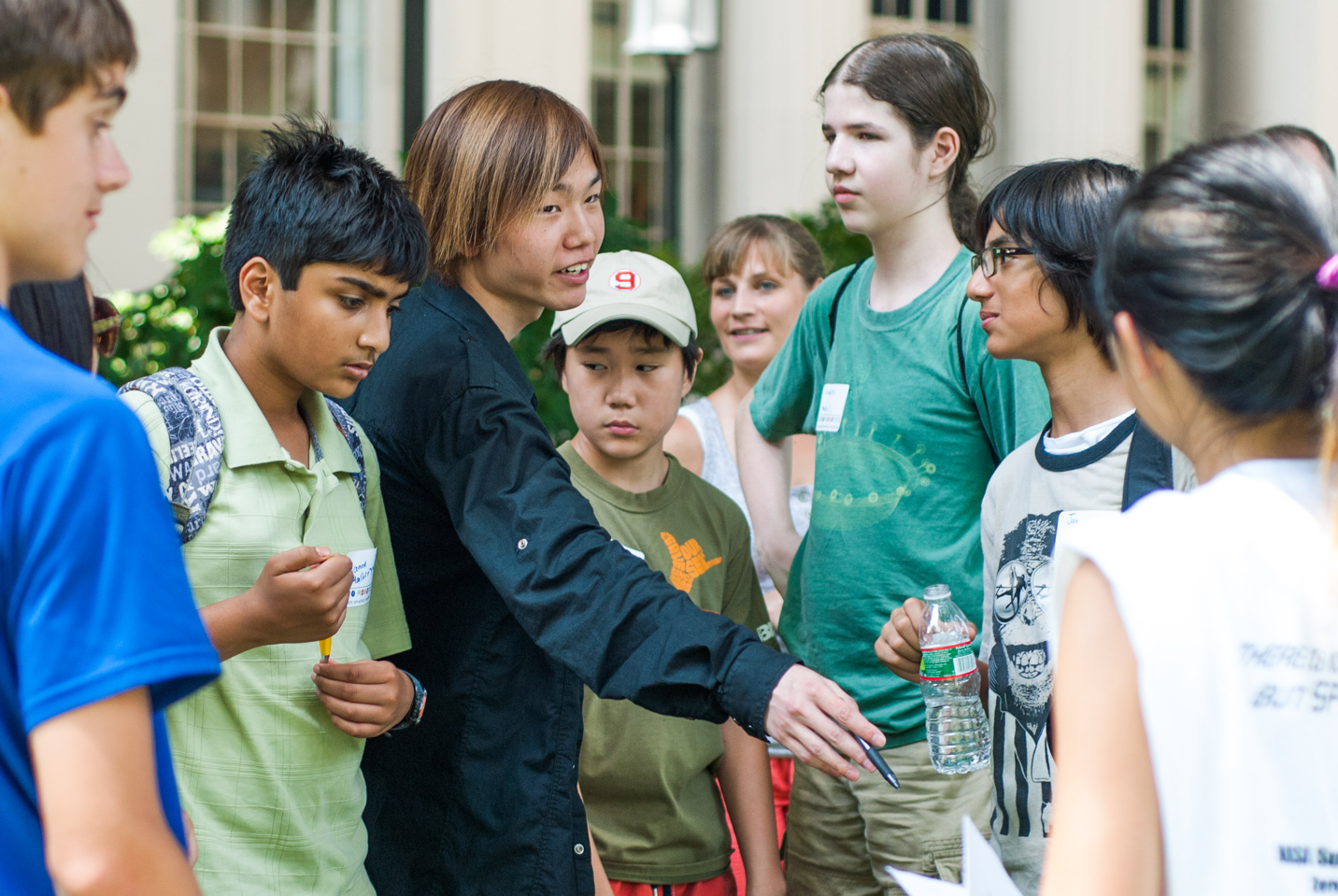


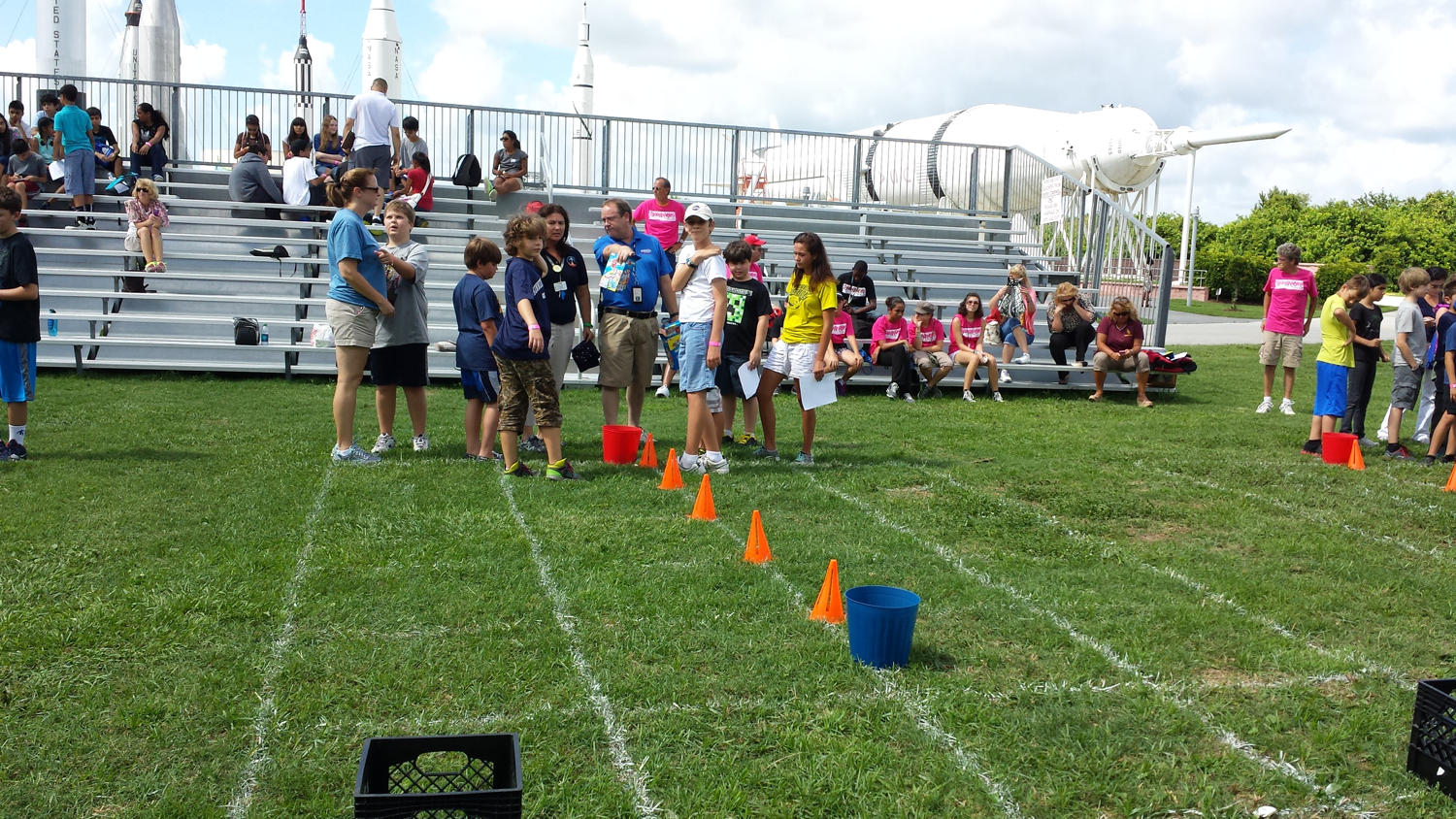
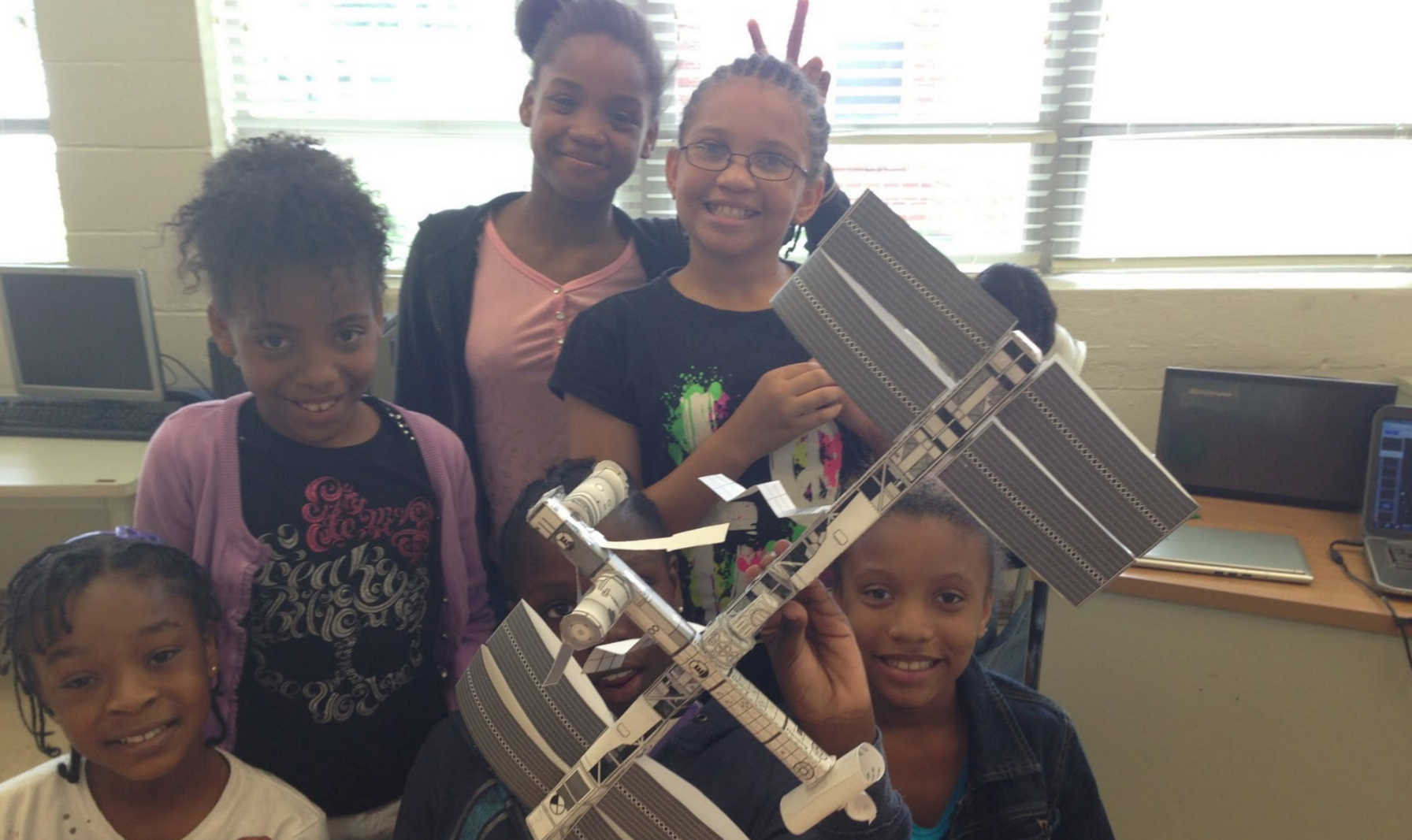


Zero Robotics was one of 6 programs of the Massachusetts Space Grant Summer of Innovation 2010 award. MAP recruited 20 teams to participate (from schools or after-school/summer programs), directly involving 200 middle school students and 20 teachers/mentors from across the state (View Map). The 2010 Summer of Innovation Zero Robotics followed the same five-week schedule presented above: introduction to space, programming, live-game event, ground competition event, and ISS event. All 10 teams participated in the ISS finals. They were present at MIT to view the live telecast of the Finals test session from the ISS . Images of students interacting with the ISS, such as these, served as extremely powerful examples of NASA's ability to attract and stimulate students and enhance STEM education.
The 2010 SoI ZR program was designed to be used to supplement an existing summer STEM program, or to serve as a standalone addition to a summer program. The 5 week curriculum was developed in a way that it could have been adapted to a program’s existing schedule if needed. Both community- and school-based organizations that worked with middle school students were encouraged to apply and priority was given to programs that worked with students of diverse ethnic and socio-economic backgrounds. Participating summer programs each received:
1. Paid training for one staff (in-school or out-of-school educator) to become a STEM Curriculum Specialist (SCS) 2. An assigned Zero Robotics/SPHERES Specialist Mentor 3. Partial SCS stipend for summer program coordination 4. Resources for up to 20 middle school students to participate 5. Funding for field trips and program materials 6. Access to NASA’s STEM Curricula 7. Unique opportunities for students to work with leaders in the STEM field
As computed from the feedback surveys, there were over 200 middle school participants from 10 schools across Massachusetts. The demographic distribution was: 84% came from low-income families, 81% were African/African-American, Hispanic/Latino, Asian/Pacific Islander, or from other non-Caucasian ethnic groups (African/African-American 32%, Hispanic/Latino 37%, Asian/Pacific Islander 5%, Caucasian 19%, Other 7%), 54% were female and 75% came from low-performing school districts. The youngest participant was a rising 4th grader and the oldest participants were rising 9th graders. All ten programs had a retention rate of 88% or greater and a daily attendance rate of 90% or greater.
The following map shows the 10 participating middle school programs in the state of Massachusetts:
View ZR: Summer of Innovation 2010 Schools in a larger map
 Zero Robotics
Zero Robotics







